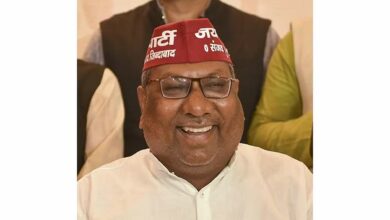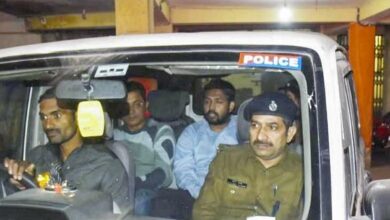Justice Chandrachud commented on the rising level of air pollution in the national capital Delhi
Justice Chandrachud, the recently retired Chief Justice of India, has commented on the rising air pollution levels in Delhi, the nation’s capital, where many citizens, including himself, have chosen to skip their daily morning walks in order to protect their health.

In an exclusive interview with ANI, the former Supreme Court judge expressed his excitement at seeing people trust the legal system to address the threat he blames to “multidimensional issues” including agricultural fires and an increase in traffic.
In an exclusive interview with ANI, the former CJI stated: “It’s fantastic that people have this level of trust in the legal system. Nonetheless, I believe that part of the solution to problems like Delhi’s pollution is that, for the first time in a long time, everyone has been discussing it.
Because when individuals just accept whatever occurs in society as the new normal, that’s when the true issue occurs. They also don’t talk about it. It’s not something they write about. They don’t discuss it. The first step in solving this problem is the fact that everyone is taking an active interest in it.
The former CJI said that expert agencies should manage the fundamental policymaking function, which cannot be taken over by the courts.
“The idea is that the issue is divided into two halves, you know. The first is the function of the government and its expert agencies, which are policymakers; the second is the role of the courts. In that sense, one cannot exist without the other.
It goes without saying that courts cannot assume the primary policymaking function, which belongs to expert agencies, when they become involved in this matter. Courts have the power to guarantee that the procedures are being followed. Are you putting any effort into this?
We had the graded action plan, for example. This was implemented as a consequence of the court’s involvement, meaning that we established procedures and frameworks that specify what to do in the event that pollution levels above a certain threshold. Therefore, by institutionalizing procedures, pollution response does not become ad hoc,” he said.
Justice Chandrachud said that “multidimensional issues” such as farm fires, the amount of automobiles in the city, new building, etc., must be taken into account when asked whether there is a need for greater judicial action in the case.I am also aware of judicial review’s limitations. Judges must also be aware of the boundaries of their authority.
Because it often occurs that courts are able to work effectively on issues that are not related to a single source of pollution, such as a single thermal power plant or polluting business, especially when dealing with a complicated issue like this one. However, you are tackling a challenge that involves several facets.
There are things like agricultural fires, the amount of cars in the city, new building, cropping pattern changes, and climate change in general. Therefore, they are very difficult problems in that sense. According to the previous CJI, courts must intervene, guide the authorities, and ask them, “Hey, what are you doing?”
He noted that the judiciary has done a lot of excellent work in India’s environmental sector and that the courts’ job is to encourage decision-making by the authorities.
“What actions are you doing to address the issues of today? What goals do you have for the next year? What actions would you want to take? Instead of just making conclusions on your own, court review often serves to advance matters. Another issue, in my opinion, that we must comprehend is that, in essence, we are not directly answerable to the public when courts render verdicts.
As judges, we are obviously answerable to the Constitution. However, courts are not in that sense answerable to the general public or the voters. Enforcing constitutional rights is one of our responsibilities as judges. The judiciary has now accomplished a great deal of positive work in India’s environmental sector,” the former CJI said.
Delhi is subject to a considerably distinct “constitutional distribution” of authorities, as Justice Chandrachud noted.
The former judge of the Supreme Court had earlier said that he had stopped taking morning walks because his doctor had urged him to do so because of the bad air quality, which may cause respiratory problems.
According to the Central Pollution Control Board, the national capital’s air quality index read “Very Poor” on Tuesday, a tiny improvement over the previous week when the city struggled with “Severe” air quality.
According to the Central Pollution Control Board, the Air Quality Index (AQI) was 382 at 7 a.m. today, placing it in the “very poor” category.
On November 25, the Delhi government’s Directorate of Education instructed all schools in the nation’s capital to abide with the CAQM’s directive. This ruling comes after the Supreme Court’s November 25 ruling in the MC Mehta vs.
The Union of India has instructed the Commission of Air Quality Management (CAQM) to examine the effects on education of the GRAP-4 (Graded Response Action Plan) limitations implemented to reduce air pollution in Delhi-NCR. The court raised a number of issues while highlighting the need of giving education first priority.





